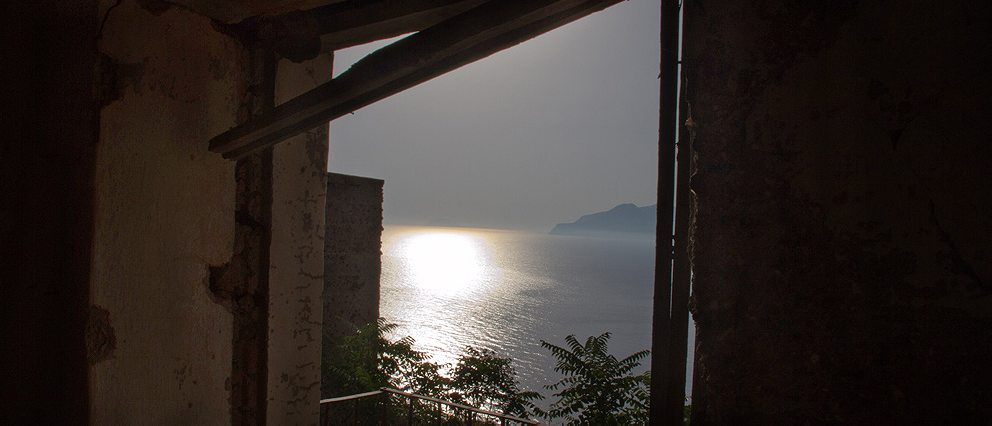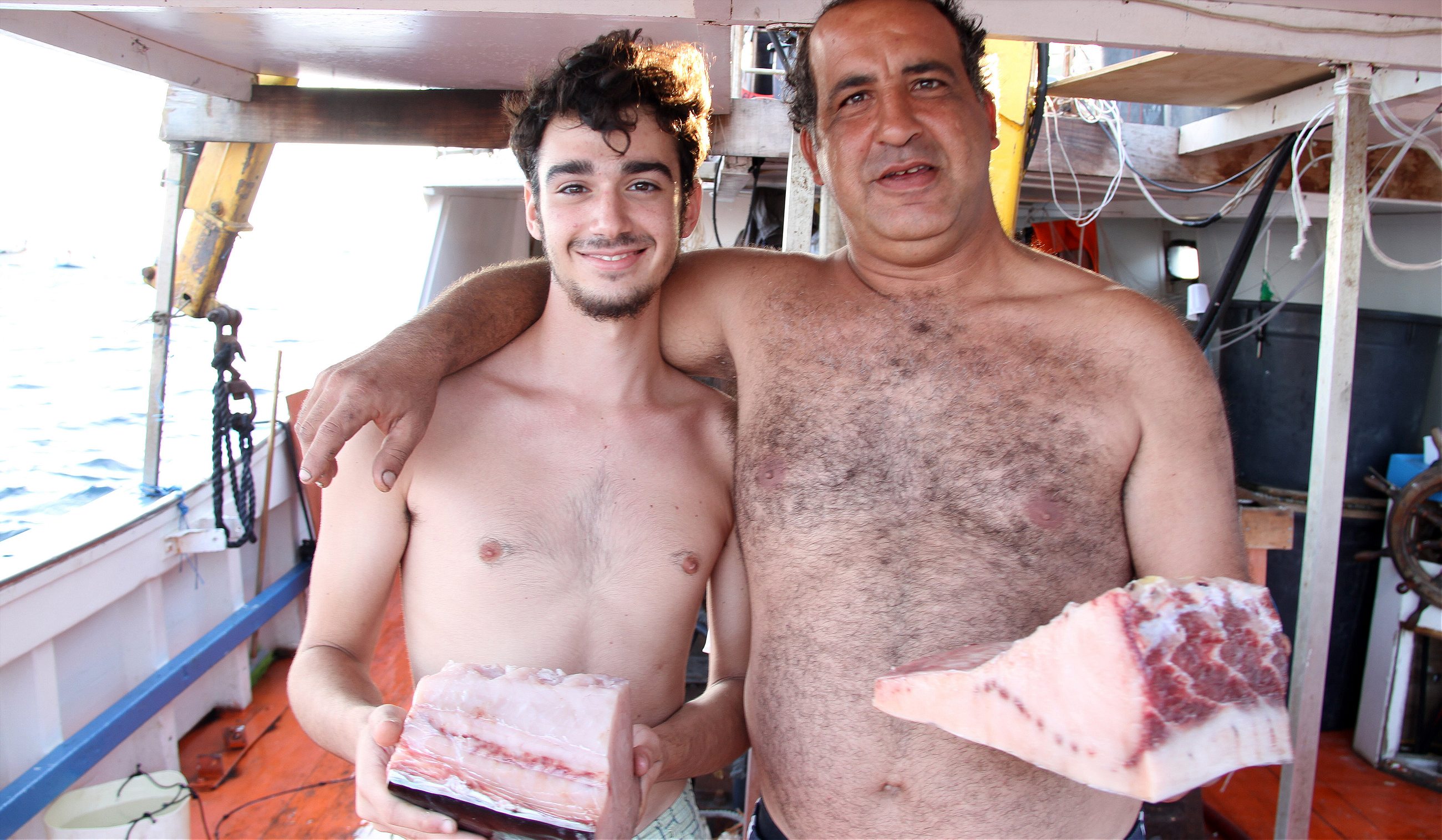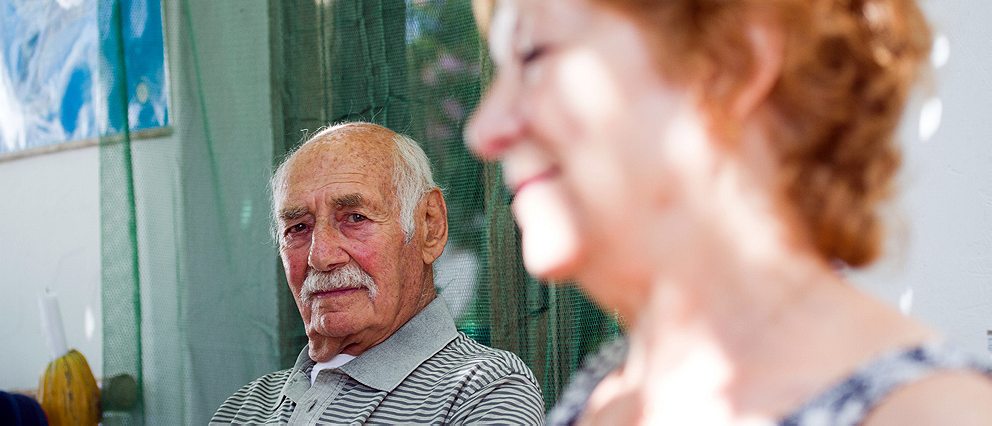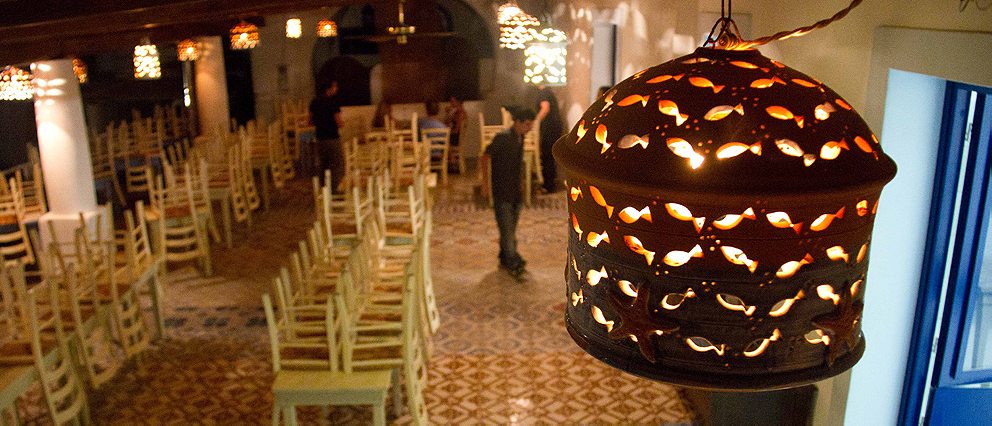Day Two in Sicily. Dispatches from a gorgeous island with a troubled history in the Aeolian Islands.
Zucco Grande
The trail, by its nature, promises what lies at the end: abandonment. It is a desolate thing that winds halfway down the high hill past cacti, a small vineyard wilting in the sun, and a stone barn where strings of garlic and onion hang to dry. And then it cuts diagonal around the hillside where there is nothing anymore, just fat lizards and loose rock a few hundred meters above the sea below.
Then, another turn, and on a far slope is the crumbled village of Zucco Grande, a place left empty by the waves of emigration from this island that started more than a hundred years ago. Now it is empty and ruined, with just a self-appointed caretaker-of-the-path who lives there, and maybe a Swiss hermit who is rumored to be living in cave on the hillside above.
Zucco Grande must have never been an easy place to live. It sits above a deep ravine on the north side on the island, approachable only by foot or donkey. But it was full a little more than a hundred years ago. The islanders tell differing numbers for the population for the entire island of Filicudi: at its height, before the crises of the late 19th century and before the wars, Filicudi is said to have been home to three thousand people. Now, the number is closer to 300, and many of those are newcomers.

Filicudari, in the old days, was home to fine stonemasons, a result of an exquisitely steep mountain-island that needed stone paths and stone-lined terraces so that the islanders could grow their grapes and capers and cucumbers to the very peak. But Zucco Grande is a place of ruin for masons, where the strong stone houses they built a hundred years ago now sit crumbled on top of each other.
Standing on a rusted balcony, or looking at the footprint of what used to be a wine cellar, it is hard not to feel, in a spiritual way, the isolation of this place. This is the home of the term, after all: the Italian word for island is isola.
But even on an isola, there is a boat that comes. It’s not like the old steamer that would have taken the people of Zucco Grande away from here forever. It’s a muscular ferryboat with the Siremar line, and it is leaving in an two hours, so there’s nothing left to do but have one more look around and then head back up the half-abandoned trail.

Swordfish Assassin
It’s known on the island simply as “Sword”, because to qualify it as a fish is to waste breath and to diminish the martial power of this creature, a fighting beast made of pure muscle with almost full dominion over the sea.
The boy does not look a match for the Sword. He is bony-chested with just a wisp of beard. He smokes cigarettes because the fat-bellied warriors who also man the Orchidea—his father’s boat—are smokers. But smoking does not make him a man, just a boy with a cough.
Yet this sparrow of a fisherman is opening the cold storage locker on the boat and smiling at the massive head inside, severed just below the gills, sword spiking nearly to the roof of the locker. It’s as thick around as a motorcycle wheel. The caudal fin—the crescent-shaped tail as big as a scythe—has also been cut off and is lying on the deck behind the fish scale. The Orchidea brought this fish to heel, maybe fifty kilos of animal in all, and they slaughtered him for sale that day.
In the back of the boat, a shirtless man with stubble and wan smile is cutting steaks off this swordfish with a knife the size of a machete, weighing the meat for the handful of customers who line up. Twenty-five euros a kilo. Not cheap this beast.
This was not a successful day at sea—often the Orchidea will bring in two, three, even four swords this size. But the mood at the dock is good. They have come just after noon, and they will stay on the boat, talking, gutting, cleaning, smoking until the sun has dipped under the island’s big mountain.
The boy would like copies of these pictures taken of him on the Orchidea. Perhaps he could get them by email? The men, one washing the deck, the other sitting in a chair by the gunwale, laugh and wave a hand. “Email, ha,” they say, as if the boy had suggested painting his toenails. But the boy goes back to the pilothouse for a pen and returns with a torn sheet of paper and his email address written on it. The fattest of the fishermen reads it as the boy passes by: the email handle he has chosen with an Italian ISP is assassinblack.
“Assassino!” the cry goes out. “Assassino!” All the men are laughing now. One claps him on the shoulder, and the boy smiles, looks downs and puts another cigarette to his lips.
He does not seem very bothered by this. Maybe he knows what the others do not, that they are all assassins. They are all killers of swords, even the boy.

The Aussie-Filicudians
Stefano Zagami is 88, but looks like he might have another 50 years in him. He makes his own wine, eats 10 cucumbers a day and keeps three freezers stocked with all varieties of island flora and fauna: prickly pear (one of the few gifts Spanish invaders left in their wake), runner beans, and animals that try to eat his prickly pears and runner beans. One of the freezers contains a stack of ten rabbits and a whole fish frozen into a swooping C, like the most unforgiving case of rigor mortis imaginable.
Stefano’s freezer fixation, especially on an island capable of producing heart-breaking fruits and vegetables throughout the winter months, is a holdover from harder times. Filicudi was a leftist island during World War II, which apparently evoked the ire of Mussolini’s thugs, who would raid the houses of Filicudari. “Every piece of food was taken by the carabinieri,” Stefano says. “We had to hide the little food we could hold on to.”
Hunger eventually forced most residents off the island, much as it did across Sicily. “After the war, everyone went all around the world. A thousand people lived her before the wars. After, there were only 24.”
Whereas most Sicilians ended up in America, the Filicudari moved en masse to Australia. In Sydney, Stefano found a world far removed from the terraces of capers and grapes he used to tend back home. “It’s not what job I worked, it’s what job didn’t I work. I was a candy man, a cook, everything.”
When he returned in 1992, he came back to the house he had abandoned 42 years earlier, perched high above the Mediterranean in Valdichiesa, 100 meters from one of Filicudi’s two mountaintop churches. The house was in disrepair, so Stefano went to work restoring it to its former glory and beyond. Today, its white plaster frame and sweeping views of the sea recall the dramatic residences of Santorini.
His son, Deodato, still lives in Sydney, with his Ecuadorian wife Maria. His daughter Dina ended up in Argentina, where she makes traditional Filucudari fare to remind her family of where they come from; on Sunday’s, her kitchen is filled with the smells of slow-cooked pig’s foot.
Every July, Deodato and Dina meet in Rome, where they make the long trip down to the island to be with their father. They spend most of that month on the patio, under the snaking grape wines that protect the property from the brutal Sicilian sun. There they will all sit until late in the evening, eating Stefano’s pears, drinking Stefano’s wine, and imagining what it would have been like to have never left Filicudi.

Superfriends
There are eight of them: They come from Palermo and Rome and as far off as Portugal to spend their summer on an island with just 300 inhabitants. They live in a town with just one bar, largely cut off from the rest of the world. They drink together, eat together, sleep together. Their charge for the four months of the Filicudi tourism season: Run every aspect of La Sirena, the best of the island’s three restaurants.
La Sirena wears a red Michelin sticker on its kitchen door, making it one of the most remote outposts to receive recognition from the prickly team of French inspectors. The dining room has no walls or windows, just a salty Mediterranean breeze and views of the horizon. The menu is a simple but powerful display of the bounty of the Sicilian waters: plates of crudi, raw fish served with just olive oil and salt; spectacularly chewy spaghetti slicked with peppery oil and generous amounts of shaved bottarga, the salty, earthy crystals of dried roe; thick steaks of tuna wrapped in slices of cured pork fat that forms a crunchy skin around the fish as it cooks on the grill. And the service? Let’s just say that the group of eight form a team that would challenge the staunchest stereotypes about the indifference of Italian service.
But it’s not just a nighttime fine-dining destination. During the day, the group of friends stay busy steaming milk for cappuccinos and turning Campari and prosecco into afternoon apperitivos. Wild packs of shirtless children with crops of blonde hair play games between the legs of the tables. At one of those tables, an older Italian man, sunglassed and shirtless, holds a business meeting. At another, a group of English plot their return to La Sirena: “Either we come for two weeks with nothing but bathing suits, or we come for a month and bring our computers.” That might not get them far, though, since the island doesn’t appear to have Internet.
And always there are the superfriends. They open the restaurant shortly after sunrise and close it well after midnight. They buy boat tickets for guests and tell tales of the island’s most enigmatic characters: “He is a hermit who knows everything about Filicudi, but he won’t talk to you because he is actually a bit crazy.”
The owner is back in Tuscany somewhere, tending to his olive orchards; he can sleep well at night know La Sirena is in good hands. For some of them, it’s the greatest job on earth—summer camp with a salary and a view of the sea. Others sound a more cautious note. “Right now it’s amazing. We’ll see if we’re still talking at the end of the summer.”